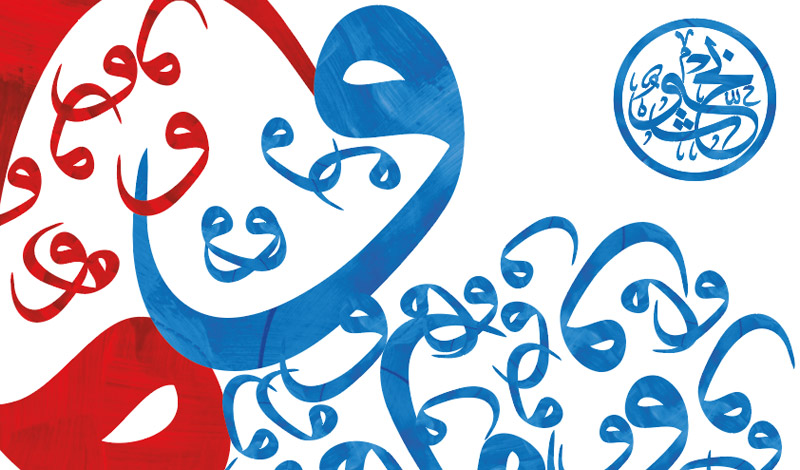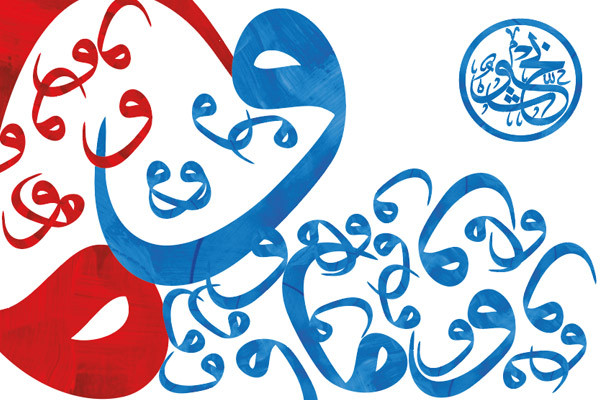Iran & Al Qaeda Links
In an interesting twist to an already complicated story, the unlikely savior of al-Qaeda is alleged to be Iran which apparently embarked on what is described as a remarkable pact with the Shia state.[1] CIA director, Mike Pompeo, suggested the al-Qaeda-Iran pact had been an ‘open secret’ during the Obama administration, which had failed to act.

- by Mark Douglas McKinney ,
- Friday, 17th November, 2017
Some analysts and historians may draw some parallels between it and the Molotov–Ribbentrop Pact, also known as the German–Soviet Non-aggression Pact which was a neutrality pact between Nazi Germany and the Soviet Union signed in Moscow on 23 August 1939 by foreign ministers Joachim von Ribbentrop and Vyacheslav Molotov. Although Iran or al-Qaeda has not reneged on the deal as the Nazis did in 1941, it is not beyond the realms of possibility for one of the two to turn on the other when they are least expecting it.
President Donald Trump has used the alleged link to justify his intention to de-certify the Iran nuclear deal which he feels is wholly unacceptable, however he is facing what is described as ‘overwhelming European opposition to the move.
The allegations of a link between Iran and al-Qaeda has come to light after the US raid on Osama bin Laden’s compound revealed documents which amongst other evidence, stated that ‘negotiations between al-Qaeda and the Revolutionary Guards in Tehran touched on funding and arming the Sunni terror outfit so it could strike at American targets.’
In the light of the new evidence and interviews conducted with senior al-Qaeda members and Osama bin Laden’s family over the last five years the link, which has often been dismissed in the past, appears to be gaining more credibility.
The report catalogues the covert activities of various agents and the alleged involvement of the US. It outlines the role of al-Qaeda operative Mahfouz Ibn el-Waleed in 2001 who apparently brokered the deal to support and train the group and provide sanctuary for its members and their families in Iran.
Only 400 strong when the Twin Towers fell, damaged by the US invasion of Afghanistan and then later overshadowed by Daesh, al-Qaeda now, with its leadership split between Iran, Pakistan, and Syria, has quietly rebuilt itself to the point of being able to call on tens of thousands of foot soldiers. Melding with anti-Assad forces, reducing its volubility, and toning down the barbarity associated with it during the al-Zarqawi years, a reformed al-Qaeda allied, trained and equipped by Hezbollah and the Quds Force are models for how it might now evolve.
Many analysts have said that al-Qaeda was the organization which was most likely to survive and indeed benefit from the demise of the more reckless Daesh, it appears that its dangerous liaison with Iran continues to bear it much fruit.
An ongoing theme in the war of words between Tehran and Riyadh has seen Iran’s leadership continuing to promote the notion that Saudi Arabia supports Islamist extremism and has suggested that it is deliberately backing ‘Takfiri’ groups, i.e. Daesh and al-Qaeda, to advance its own political agenda across the Middle East and beyond. An Iranian foreign ministry spokesman stated, ‘this tactical use of terrorism by regional and global players is a strategic game which will have long-term and strategic repercussions.’
For some time, Iran has been engaged in this policy which has exploited the deepening hostility between the two nations in an attempt to try to shift the West’s long-standing anti-Iranian discourse and instead to paint Saudi Arabia as the primary supporter of terrorism in the region rather than Iran. For a time the Iranian policy gained some traction, particularly as the war in Yemen has dragged on and the humanitarian crisis has deepened. In a move that suggests that a shift away from instinctive Western support for Saudi may be starting to happen, some Western politicians in both the US and Europe have risked criticizing Saudi as supporters and financiers of terrorism and Islamist extremism. Iran has sought to intensify this breach in a bid to take political and diplomatic advantage of what appears to be both America and Europe’s cooling enthusiasm for Saudi Arabia, and to some extent the rest of the Arabian Gulf. However, the arrival of President Donald Trump served to push back some of the gains made by those who wished to isolate the kingdom with the signing of a multi-billion dollar arms contract shortly after his investiture. It is common knowledge that Riyadh has supported certain rebel groups in the war in Syria, some of which are extremist groups, however as they were fighting the common enemy, Daesh, this has been largely overlooked, principally because Washington was providing similar support to what it described as ‘moderate’ rebel groups.
The eventual release of thousands of al-Qaeda documents by the CIA, which were seized during the raid on Osama bin Laden’s compound in Abbottabad in Pakistan, has revealed some very interesting aspects of the true nature of al-Qaeda’s relationship with Iran and more worryingly the role of President Obama’s administration which has been accused of ‘politicizing intelligence.’[2]
The question which has often been asked has been ‘why didn’t President Obama want this material released?’ The answer is relatively simple in that any connection between Iran and al-Qaeda would have derailed the nuclear deal. The deal which the analyst, Clifford May, describes as ‘his agreement to provide Tehran with legitimacy and billions of dollars while ignoring its ballistic missile programmer, continuing sponsorship of terrorism and egregious human rights violations; all in exchange for the regime’s promise to delay a nuclear weapons programmer whose existence it denies.’
Many think tanks, scholars, journalists, policymakers, legislators, the public and media outlets wanted all of the documentation to be released, however this did not happen. The editor of the Weekly Standard, Stephen Hayes, recalled that one of the last acts of the Obama administration was to issue a press release entitled ‘Closing the Book on Bin Laden: Intelligence Community Releases Final Abbottabad Documents.’ In reality, the Obama administration had released only 571 out of tens of thousands of potentially revealing documents and files. And these carefully selected materials were made public only because the National Intelligence Authorization Act of 2014 forced the hand of President Obama’s director of national intelligence. Stephen Hayes stated, ‘this is what the politicization of intelligence looks like.’
The fact that the documents have finally been released by the director of the CIA, Mike Pompeo, means that the Iranians have been exposed as being closely linked with al-Qaeda. Iran’s foreign minister, Javad Zarif, and those Western ‘apologists’ for the regime have long been promoting Iran as an essentially ‘normal and progressive nation, keen on regional stability, fighting terrorists, and insisting only on its right to self-defense.’ The released documents tell an entirely different story which confirms what many analysts have suspected for years in that al-Qaeda and the Islamic Republic of Iran are not so much enemies as rivals. Although they have profound theological differences, al-Qaeda is Sunni, Iran’s mullahs are Shia, they have forged a common bond. For 1,400 years, no peace process has resolved the split between these two readings of Islam, so why now?
The unlikely relationship which was suspected but previously could not be proved reveals that al-Qaeda and the theocrats in Tehran do manage to cooperate, collaborate and collude. Why have the two groups which have such irreconcilable differences of belief formed a pact? Mr May asserts that both believe they have a religious duty to wage a jihad against the ‘arrogant,’ which means ‘insufficiently submissive infidels’, and naturally the Americans (the great Satan) and the Israelis (the little Satan) are at the top of their lists.
Mr May’s ‘scattergun’ approach finishes by pointing out a note in Osama bin Laden’s diary in which he offers praise for al-Jazeera, Qatar’s popular news-and-propaganda outlet. He is perhaps alluding to Qatar’s overt support for the Muslim Brotherhood and other unsavory groups. Also in the diary, Bin Laden reflects on the Muslim Brotherhood and how it ‘influenced his view of the world and led him to commit his life to jihad.’ Some observers may be of the opinion that Mr May is guiding the reader to view those nations which support the Muslim Brotherhood in a wholly different light.

Mark Douglas McKinney
Geostrategy and Defense (former)

